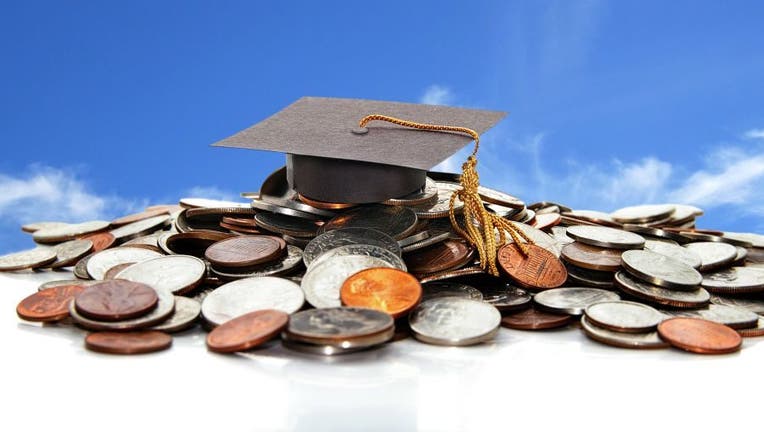Should you continue paying private student loans if payments are suspended?

Your best approach will depend on what your lender is offering and your financial situation during the COVID-19 outbreak. (iStock)
You may have heard the good news: the Coronavirus Aid, Relief, and Economic Security (CARES) Act, which was passed by Congress in March and has supplied $2 trillion of relief, put all payments on most federally held student loans on hold through September 30. That’s provided some much-needed relief to many of the 43 million people with federal student loans.
Borrowers with eligible federal loans were automatically placed into administrative forbearance — meaning they’re not required to make principal and interest payments, and their loans have a 0 percent interest rate, until September.
The bad news is the bill has not suspended payments on private student loans. So if money is tight right now and you have private loans, you may want to consider refinancing them in order to lower your monthly payments and lift some of your financial burden. Your savings could be significant, considering that interest rates have plummeted in recent months. Pro tip: you can visit Credible to compare prequalified student loan refinancing rates from up to 10 lenders.
10 OF THE BEST STUDENT LOAN REFINANCE COMPANIES
You can also use Credible’s student loan refinancing calculator to help determine what your new monthly payments would be before you pull the trigger. Or fill out some simple information to find out what rates you qualify for within minutes.
There’s a silver lining, though: Some private lenders are offering to suspend payments for private loan borrowers — but there are some important caveats that you need to be aware of before you stop making payments.
These three questions will help you determine whether it makes sense to continue paying private student loans even if your payments have been suspended.
Should I continue to pay my private student loans?
If your private loan payments have been suspended, your lender probably provided you forbearance — an agreement that allows you to temporarily postpone payments, but interest will continue to accrue. If that’s the case, pausing your loan payments may end up costing you a significant sum of money in the long run.
THIS IS WHY STUDENT LOAN REFINANCING RATES ARE GOING DOWN
Another reason to keep up with your private loan payments? If your job is stable, you don't have other debt, and you have a sufficient emergency fund (read: enough to cover three to six months’ worth of living costs), chipping away at your private loans’ principal will help you stay on track and pay off the debt faster than if you decide to pause your monthly payments.
What relief is available if I’m having trouble making payments?
Forbearance isn’t your only option if you’re struggling financially, but your options will depend on your loan servicer. For example, Navient offers hardship relief to private loan borrowers, including a rate-reduction program, interest-only payments and an extended-repayment plan.
In addition, a handful of states — including California, Colorado, Connecticut, Illinois, Massachusetts, New Jersey, New York, Vermont, Virginia and Washington — have reached agreements with private lenders and servicers to have them temporarily:
Waive late fees.
Stop issuing negative credit reports.
Pause debt-collection lawsuits.
Help borrowers enroll in debt assistance programs.
How do I find out if my private loans are eligible for a payment pause under the CARES Act?
You can ask your loan servicer, go to StudentAid.gov/login, or call 800-433-3243 to see if your private loans are eligible for forbearance during this time.
WHY YOU SHOULDN'T REDUCE STUDENT LOAN PAYMENTS
Another valuable resource for information is StudentPandemicAid.org — it’s a free guide for anyone with student loans who has been affected by the pandemic and is looking to understand their options. You can also check out the Student Borrower Protection Center’s free webinar on how to manage student loan debt during the pandemic.
The bottom line
If you can continue paying off your private loans without jeopardizing your finances, it’s generally a smart approach to keep up with your payments. But, if you’re having trouble making ends meet, there may be ways you can pause your monthly payments while you recuperate financially and regain your footing.
Don’t forget to visit Credible to research rates from different private student loan companies to ensure you save as much money as possible.

